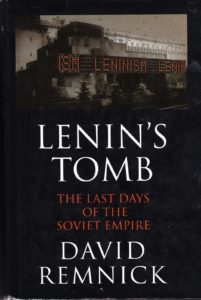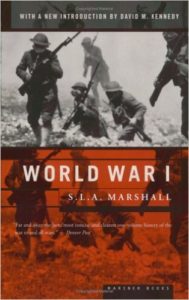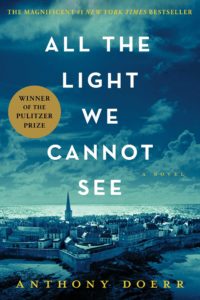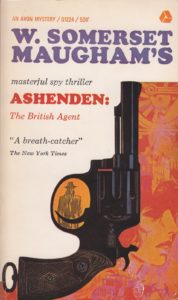Eight Knockout Reads from 2015
Year’s end brings a geyser of lists of the year’s “best books.” I choose to modify this approach to report the best books that I read over the last year, since I get to few newly-issued books — pretty much only ones by friends or ones I’m writing a review of. Otherwise, I’m either reading something for my own research or trying to catch up on the best titles of the 1920s.
So, here goes with what some might call a thumpingly “guy” list:
Nonfiction
 A Wicked War: Polk, Clay, Lincoln, and the 1846 Invasion of Mexico, by Amy Greenberg — I know you haven’t been sitting up at night worrying about the Mexican War, but this treatment will keep you riveted with gripping portrayals of the fascinating characters at the center of this drama, America’s first official foray into imperialism. Greenberg finds America’s conduct disturbing, yet offers an unflinching view of our bold and highhanded seizure of Texas, Arizona, New Mexico, California, Nevada, and much of other Western states. To adapt the 1977 remark of Senator S.I. Hayakawa of California about the Panama Canal Zone, “We stole it fair and square.”
A Wicked War: Polk, Clay, Lincoln, and the 1846 Invasion of Mexico, by Amy Greenberg — I know you haven’t been sitting up at night worrying about the Mexican War, but this treatment will keep you riveted with gripping portrayals of the fascinating characters at the center of this drama, America’s first official foray into imperialism. Greenberg finds America’s conduct disturbing, yet offers an unflinching view of our bold and highhanded seizure of Texas, Arizona, New Mexico, California, Nevada, and much of other Western states. To adapt the 1977 remark of Senator S.I. Hayakawa of California about the Panama Canal Zone, “We stole it fair and square.”
 Lenin’s Tomb: The Last Days of the Soviet Empire, by David Remnick — As the Washington Post’s Moscow correspondent in the late 1980s and early 1990s — a job that that the Internet would soon eliminate by sucking the life out of modern newspapers — Remnick had a front-row seat on Mikhail Gorbachev’s desperate and doomed attempt to modernize the communist system. Remnick was indefatigable, talking to everyone he could find across the Soviet Union’s eleven time zones. He produced a compelling, appalling picture of a corrupt and greedy system that afflicted Russians for generations and richly deserved to die.
Lenin’s Tomb: The Last Days of the Soviet Empire, by David Remnick — As the Washington Post’s Moscow correspondent in the late 1980s and early 1990s — a job that that the Internet would soon eliminate by sucking the life out of modern newspapers — Remnick had a front-row seat on Mikhail Gorbachev’s desperate and doomed attempt to modernize the communist system. Remnick was indefatigable, talking to everyone he could find across the Soviet Union’s eleven time zones. He produced a compelling, appalling picture of a corrupt and greedy system that afflicted Russians for generations and richly deserved to die.
 World War I, by S.L.A. Marshall — This fifty-year-old survey of the global catastrophe of The Great War is a wonderfully concise treatment (barely 500 pages) and a fitting way to honor the war’s centennial. An American Army general himself during World War II, Marshall doesn’t get bogged down in the military history (very little palaver about how the 257th Regiment angled slightly to the left of the 97th Grenadiers’ salient, which sat at right angles to the 1,576th’s order of attack). With insight and horror, he tells you what happened. Really good stuff that comes from the era before every nonfiction title required a colon and a subtitle.
World War I, by S.L.A. Marshall — This fifty-year-old survey of the global catastrophe of The Great War is a wonderfully concise treatment (barely 500 pages) and a fitting way to honor the war’s centennial. An American Army general himself during World War II, Marshall doesn’t get bogged down in the military history (very little palaver about how the 257th Regiment angled slightly to the left of the 97th Grenadiers’ salient, which sat at right angles to the 1,576th’s order of attack). With insight and horror, he tells you what happened. Really good stuff that comes from the era before every nonfiction title required a colon and a subtitle.
 The Fall of the Ottomans: The Great War in the Middle East, by Eugene Rogan — Yup, I burrowed pretty deep into World War I this year, and there’s that pesky colon + subtitle. But if you’re trying to figure out how the Middle East has turned into such a cradle of misery and slaughter, this is a good place to start. The Ottoman Empire, in truth, was the last caliphate. When it entered the war on the side of Germany and Austria-Hungary (remember Austria-Hungary?), the Ottoman emperor declared jihad against Britain and France, calling on all good Muslims to strike at the unbelievers. Familiar? On a note of personal privilege, it was also fascinating that the U.S. of A. actually sat this one out; we never declared war on the Ottomans. When was the last time we sat one out?
The Fall of the Ottomans: The Great War in the Middle East, by Eugene Rogan — Yup, I burrowed pretty deep into World War I this year, and there’s that pesky colon + subtitle. But if you’re trying to figure out how the Middle East has turned into such a cradle of misery and slaughter, this is a good place to start. The Ottoman Empire, in truth, was the last caliphate. When it entered the war on the side of Germany and Austria-Hungary (remember Austria-Hungary?), the Ottoman emperor declared jihad against Britain and France, calling on all good Muslims to strike at the unbelievers. Familiar? On a note of personal privilege, it was also fascinating that the U.S. of A. actually sat this one out; we never declared war on the Ottomans. When was the last time we sat one out?
Fiction
 Clockers, by Richard Price — This study of the war on drugs on the mean streets of North Jersey has been around since 1992, but it was new to me and it hasn’t aged a bit. Price’s cops are wrecks, running on fumes as they fight through the numbness induced by the sheer crumminess of the neighborhoods they’re trying to keep a lid on. The revelation in this book is the portrayal of the youthful drug dealers, who sink into their own numbness in a brutal world where every gesture, every facial expression may determine whether they live to the next minute. You know that blinding insight in Freakonomics that many drug dealers make so little money that they live with their moms? Price nailed that one in Clockers more than a decade before Freakonomics. This was a book I couldn’t put down. (Important tip: Spike Lee made a lousy movie from the book; avoid the movie.)
Clockers, by Richard Price — This study of the war on drugs on the mean streets of North Jersey has been around since 1992, but it was new to me and it hasn’t aged a bit. Price’s cops are wrecks, running on fumes as they fight through the numbness induced by the sheer crumminess of the neighborhoods they’re trying to keep a lid on. The revelation in this book is the portrayal of the youthful drug dealers, who sink into their own numbness in a brutal world where every gesture, every facial expression may determine whether they live to the next minute. You know that blinding insight in Freakonomics that many drug dealers make so little money that they live with their moms? Price nailed that one in Clockers more than a decade before Freakonomics. This was a book I couldn’t put down. (Important tip: Spike Lee made a lousy movie from the book; avoid the movie.)
 Elegy for April, by Benjamin Black/John Banville (read by Timothy Dalton) — The link here is to the audio book because I listened to this one, which proved to me that reader Timothy Dalton is far more than one of the James Bonds who didn’t really work out. This murder mystery, set in Dublin, isn’t about the puzzle or the thrills. The puzzle isn’t that puzzling and the thrills are thin on the ground. It’s about the gloomy, very strange characters (hint: the “hero” is named Quirke), the drizzly, chilly feel of Ireland, and mostly about gorgeous sentences. I may have enjoyed the language more because I listened to the book.
Elegy for April, by Benjamin Black/John Banville (read by Timothy Dalton) — The link here is to the audio book because I listened to this one, which proved to me that reader Timothy Dalton is far more than one of the James Bonds who didn’t really work out. This murder mystery, set in Dublin, isn’t about the puzzle or the thrills. The puzzle isn’t that puzzling and the thrills are thin on the ground. It’s about the gloomy, very strange characters (hint: the “hero” is named Quirke), the drizzly, chilly feel of Ireland, and mostly about gorgeous sentences. I may have enjoyed the language more because I listened to the book.
 All the Light We Cannot See, by Anthony Doerr — I didn’t want to read this one. Not more Nazis. But it’s such a smash (as I write, it’s still #21 on the Amazon bestseller list nearly two years after publication and has almost 20,000 reader reviews!). And, unexpectedly, it deserves all the acclaim. The writing is delicate yet powerful. Doerr’s central characters are a blind girl, her loving craftsman father, and a German orphan caught in the maw of the Nazi machine. Each is rendered in an achingly touching way. Even the Nazis are actual people, recognizable if hateful. It turns out there’s a reason everyone has been reading it. Read it.
All the Light We Cannot See, by Anthony Doerr — I didn’t want to read this one. Not more Nazis. But it’s such a smash (as I write, it’s still #21 on the Amazon bestseller list nearly two years after publication and has almost 20,000 reader reviews!). And, unexpectedly, it deserves all the acclaim. The writing is delicate yet powerful. Doerr’s central characters are a blind girl, her loving craftsman father, and a German orphan caught in the maw of the Nazi machine. Each is rendered in an achingly touching way. Even the Nazis are actual people, recognizable if hateful. It turns out there’s a reason everyone has been reading it. Read it.
Ashenden: The British Agent, by W. Somerset Maughan — Almost a century old, this progenitor of the modern spy story remains a terrific introduction to the clandestine world, based on Maugham’s own experience as a secret agent for British intelligence during World War I. I have written about the book elsewhere, applauding it’s exploration of the moral ambiguities of spy work and its understated yet excellent writing, based largely on piercing observations of people and life in general. (I acknowledge with slight despair that this book also was a pioneer in the use of the colon-beset title. Oh, well.)
